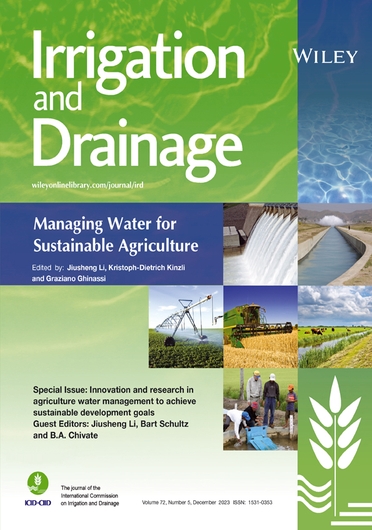Technical and allocative efficiency of crop production using different storage and water-lifting technologies in Central Rift Valley, Ethiopia
Abstract
Assessing the efficiency gains, in terms of crop production and productivity, of using agricultural water management is critical to understanding the comparative advantage of using different storage and water-lifting technologies in irrigation development. This study aims to compare the efficiency differences among irrigation farmers using various water-lifting technologies and among users of various technology suites in the Central Rift Valley, Ethiopia. Cross-sectional data collected from 320 randomly selected smallholder farmers, considering the 2019/2020 production season, were used to analyse a one-step Cobb–Douglas stochastic frontier function. The results of the study revealed the existence of technical and allocative efficiency differences between gravity and fuel pump users. Factors that positively determine the level of technical efficiency scores are gender, age, education status, technology type and extension contact. Irrigation experience, access to credit, training and technology type positively affected allocative efficiency, while the distance to the irrigation water source had a negative effect. The findings have important implications for agricultural policy and practice as improving efficiency through the adoption of fuel-powered water-lifting technology could further improve overall agricultural productivity. Designing small-scale friendly business models and promoting irrigation extension services, among others, is critical for scaling successful water management technologies.

